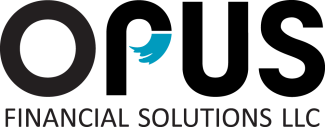Investment Management
After we have developed and reviewed a financial plan, we move to the implementation of a client's savings and investment plan, being sure it aligns with not only their goals, but also liquidity needs, tax situation, risk tolerance and investment time horizon. Some clients do choose to engage Opus for investment management services without planning services. Our basic management philosophy applies whether we invest based on planning results or client direction.
Because high fees can detract from goal achievement, we emphasize low cost, tax-conscious asset location and rebalancing. We place an emphasis on both upside capture and downside protection. After implementing the portfolio for our clients, we employ a combination of strategic and tactical investment strategies, regular rebalancing of the portfolio, and adjustments reflecting our clients' unique situations.
Our investment management is guided by the foundational principles below.
Our Foundational Principles
Allocation AND Diversification Matters
Time and time again, academic studies have shown that the greatest determinant of portfolio volatility is the overall mix of asset classes - what we call asset allocation. Within the asset allocation, diversification matters. This is the investment management equivalent of not having all your eggs in one basket. We will design an allocation that is appropriate for each client's stage of life and goals.
Fees Matter
An entire industry exists around manufacturing access to capital markets. All of the product providers are in the business to make a profit. Any profit they make is an expense to those who own their products. Studies have shown that a key determinant of performance is the product's expense ratio. Higher expenses are highly correlated with lower relative returns. Because fees matter, we tend to construct portfolios using low cost, no-load mutual funds, institutional share classes of mutual funds, or exchange traded funds in an attempt to minimize portfolio costs while still gaining the exposures necessary for the portfolio construction.
Taxes Matter
Tax drag is the lost return over time as a result of paying taxes along the way. Actively managed strategies tend to have higher turnover and as a result tend to be less tax efficient. Passive or factor-based strategies tend to have lower turnover and as a result tend to be more tax efficient. Selection of tax efficient investments can make a significant difference to clients when compounded over many years. In addition to tax efficient product selection, we also will look for tax loss harvesting opportunities in client portfolios and give consideration to tax implications when the need to rebalance arises. And finally, we also look at asset location, placing less tax efficient assets in tax deferred accounts, and more tax efficient assets in taxable accounts, thereby promoting overall tax efficiency and reducing tax drag on portfolios.
Time IN the Markets Matters
There are many newsletters that claim to be able to time through the market's ups and downs. Many advisor websites will even promote their ability to be in the market when things look good, and out of the market when things do not look good. While it sounds fantastic, from a practical perspective, it is difficult at best and impossible at worst to time through markets - particularly in the short term. Instead of attempting to time the markets, we establish portfolios in line with client goals and risk tolerances, rebalance those portfolios back to risk targets methodically on a periodic basis, and allow efficient markets to award risk-taking over time.
Execution Matters
Putting all the elements above together takes a great deal of coordination of investment due diligence and portfolio implementation or reallocation. Setting up reasonable portfolios, keeping fees low, taking advantage of tax opportunities to reduce tax drag, and establishing a disciplined process of rebalancing matters.
As an added service with Opus, clients’ external accounts (such as 529's, annuities, bank accounts, mutual funds, employer 401Ks, restricted stock and stock option accounts, loan accounts, donor advised funds, trusts, etc.) can be automatically “linked” to our portfolio management system so that our ongoing recommendations for rebalancing or changes incorporates a client’s entire portfolio—not just a portion of it.
We provide 24/7, secure, web-based viewing access to your portfolio positions, transactions, and performance, where you can also store and access all of your important financial information and documents.

